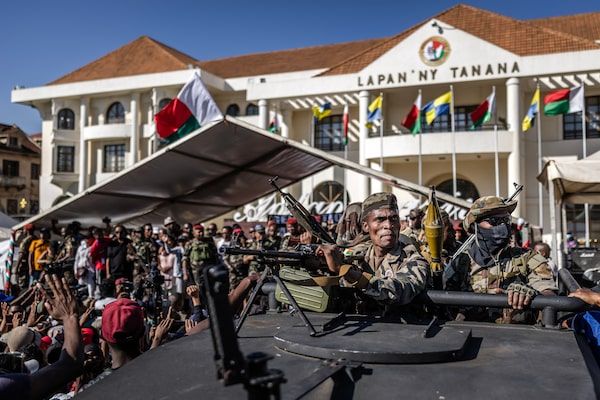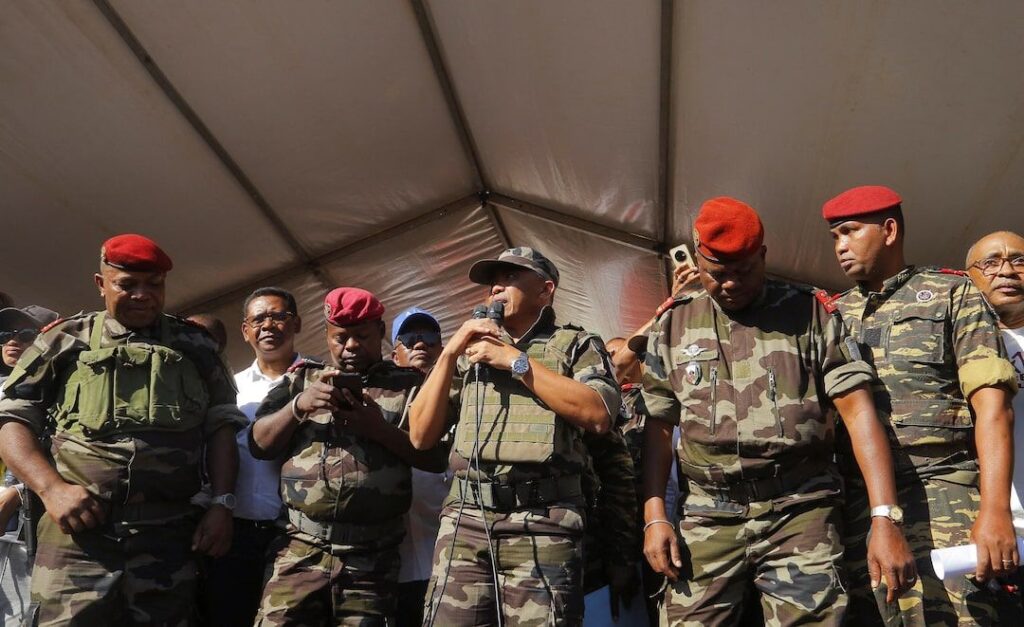Madagascar has plunged into political turmoil after the country’s military announced a takeover on Tuesday, October 14, 2025, just hours after President Andry Rajoelina was impeached by Parliament. In a televised address, Colonel Michael Randrianirina, a senior officer from one of the country’s elite military units, declared that the armed forces had “assumed full control” of the state to “restore order and protect national unity.”
The announcement marks a dramatic escalation in the Indian Ocean nation’s deepening political crisis, which has been brewing for weeks following allegations of corruption, abuse of power, and constitutional violations leveled against Rajoelina. The President’s impeachment was confirmed earlier in the day after an overwhelming vote by lawmakers, who accused him of undermining democratic processes and mishandling state funds.
Colonel Randrianirina, flanked by uniformed officers during his address, said the military intervention was “not a coup but a necessary act to safeguard the stability and sovereignty of Madagascar.” He assured citizens that the armed forces would form a transitional council to manage national affairs until “free and fair elections” could be organized. He also pledged that the military had “no interest in power” and would “respect the will of the Malagasy people.”

Reports from Antananarivo, the capital, indicate that soldiers have taken up positions around key government buildings, the presidential palace, and major broadcasting stations. The streets, however, remain relatively calm, with citizens watching developments cautiously. While some residents expressed relief that the military had stepped in to end weeks of political paralysis, others voiced concern about the potential return of authoritarian rule — a familiar pattern in Madagascar’s history of coups and military interventions.
International reaction has been swift. The African Union (AU) and the Southern African Development Community (SADC) have both called for restraint, urging the military to respect constitutional order and avoid any action that could destabilize the region. The United Nations has also appealed for dialogue, warning that political instability could derail Madagascar’s fragile economic recovery and humanitarian efforts.
Madagascar, one of the world’s poorest nations despite its vast natural resources, has faced repeated political crises since gaining independence from France in 1960. The country has experienced several coups — most notably in 2009, when Rajoelina himself, then a young mayor of Antananarivo, seized power with military backing before later returning through democratic elections in 2018.
Political analysts say the current crisis exposes long-standing tensions between the executive, legislature, and military, as well as deep-seated grievances over governance and inequality. Many observers note that while Rajoelina’s administration was credited with infrastructure expansion and foreign investment initiatives, it was also marred by accusations of corruption, rising living costs, and suppression of dissent.

As of Wednesday morning, Madagascar’s borders and airports reportedly remain open, though several foreign embassies have advised their nationals to exercise caution. The transitional military council has not yet released a timeline for elections or named interim civilian leaders.
Whether this takeover ushers in a brief transition or ignites another cycle of instability remains uncertain. What is clear, however, is that Madagascar stands at a crossroads — once again grappling with the tension between democracy and military power that has shaped its post-independence trajectory.
Opposition Leader Patrick Herminie Wins Seychelles Presidential Runoff

